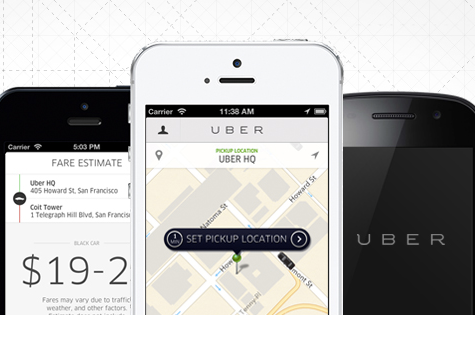AUSTIN, Texas — The San Antonio City Council voted on Thursday to impose new regulations on ride-sharing companies like Uber and Lyft. About sixty people signed up to participate in public comment, the majority of whom said they were in favor of delaying the vote to impose the regulations, according to the San Antonio Express-News. However, after nearly three hours of discussion and debate, the Council voted 7-2 in favor of the new regulations.
As Breitbart Texas reported, the new regulations include additional requirements for insurance, driver testing, and vehicle inspections, for transportation network companies, or TNCs. Uber strongly objected to the regulations and sent a letter from Leandre Johns, a Dallas-based Uber general manager, to the Council explaining how these regulations were duplicative of safety requirements that are already mandatory to have a Texas driver’s license, required insurance coverage far in excess of what taxi companies are required to carry, and created an unfair burden for Uber drivers. Johns concluded that, if the new regulations were enacted, it would “would force TNCs to abandon service in San Antonio.”
San Antonio already had the most restrictive regulations for TNCs, according to a study by the free market think tank R Street Institute, as Breitbart Texas reported last month. “Make no mistake. This is not an ordinance to allow ride-sharing. It’s an ordinance to prevent ride-sharing,” said Josiah Neeley, R Street’s Texas Director. “The regulation throws up so many anti-ride-sharing roadblocks, from millions in insurance to written exams, that it will effectively prohibit ride-sharing companies from operating in San Antonio.”
Jess Fields, senior policy analyst for the Center for Local Governance at the Texas Public Policy Foundation, had a similar opinion. In an op-ed earlier this week for the Express-News, Fields wrote how the taxi companies were employing “aggressive lobbying efforts” to stifle competition rather than improve their services. “The truth is when government protects an industry and shuts out competition, there’s no reason to do better,” wrote Fields. “As a protected industry, the taxicab companies are basically guaranteed customers and market share. They have very little incentive to provide the highest quality service or the lowest cost. Incidentally, this same factor is why, in most markets, ridesharing services price out much more inexpensively than traditional taxicabs.”
Fields also noted that groups like Mothers Against Drunk Driving “strongly opposed burdensome regulations on the ridesharing industry,” because TNCs expand the options that people have to secure a safe ride home if they have been drinking alcohol.
“Taxicab companies, ever protective of their government-enforced cartel, are no fans of the new ‘app-based’ services because they are a threat to their established model of business,” concluded Fields. “But San Antonio’s council members would do well to remember that the threat of new competition threatens taxicab companies, not consumers while the threat of drunk drivers is very real indeed.”
It is not yet known if Uber will carry out its threat to cease doing business in San Antonio. Breitbart Texas will continue to follow this story.
[Disclosure: Sarah Rumpf was previously employed by the Texas Public Policy Foundation.]
Photo credit: Uber via Facebook.
Follow Sarah Rumpf on Twitter @rumpfshaker.

COMMENTS
Please let us know if you're having issues with commenting.